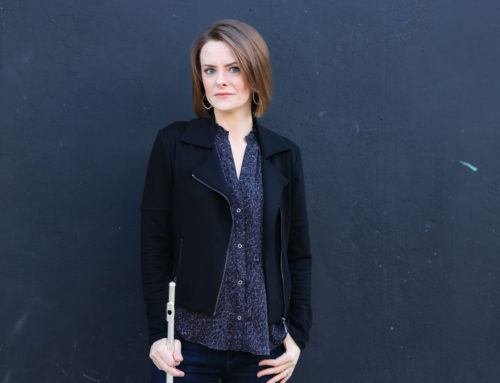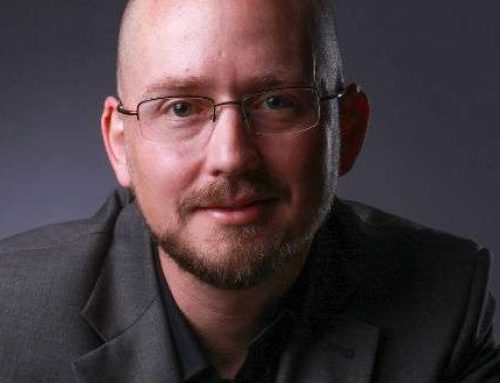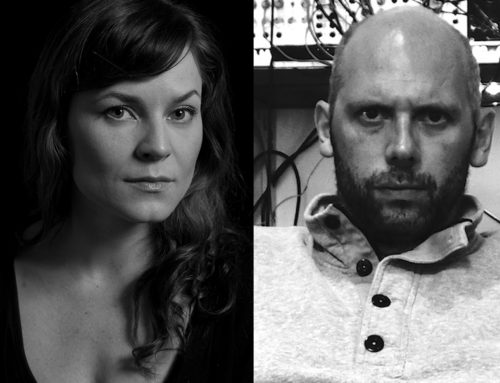This is not a comprehensive list of all the things you need to build a portfolio career. It’s a place to start. Through several hundred interviews and hours of coaching composers and creatives, these things always rise to the surface. Consider them a solid base for building a portfolio career.
Positive Attitude
This is where it starts. How you think about yourself and the work you do directly impacts the results you get.
A positive attitude is a can-do attitude. It feels that anything is possible. A positive attitude daydreams and imagines great things. Both for your career and for your music.
A positive attitude takes personal responsibility for failings. This isn’t about ignoring disappointment or when bad things happen. It recognizes that at some level our thoughts and actions contributed to the result we currently have. More importantly, a positive attitude allows you to take the next step and to get back up when you’ve fallen down.
Building a career in music is hard. But if you spend your day filled with thoughts of lack, struggle, or things you have to, must, or should do you feel like the world is against you. You will feel that you are getting nowhere. Filled with emotions generated by those thoughts you’ll take actions that give you the results you don’t want. It’s more likely that you will not take the actions that will move you towards your goals. This is a life filled with frustration, hopelessness, and procrastination.
On the other hand, you can spend your day in wonder and gratitude at all the opportunities that lay before you. You’re not pretending that building a career is easy. Instead, you look at the struggles as challenges to be overcome. Instead of have to, must, or should do your thoughts become get to, choose to, desire to. When you make this shift the world will fill with opportunity. This results in a boatload of positive emotions that make you feel invincible. You’ll take action and move towards your goals. You will get a different set of results.
Struggling with being positive? Start by being grateful. Even for the things that aren’t going your way. Each disappointment is a chance to learn something new, fix a bad a behavior, and try again. Keeping a gratitude journal really helped me. It can help you, too.
Persistence
And what happens when we’re still positive and don’t get the results we want? You get up and try again.
One of the biggest takeaways from Steven Pressfield’s incredible book, The War of Art, is that a true professional doesn’t give up.
A true professional shows up EVERY day and does the work.
A true professional shows up whether you feel like it or not.
A true professional keeps trying even in the face of disappointment and embarrassment.
If you have listened more than a handful of the podcast interviews you should start noticing some trends. One of the most obvious is that these composers, performers, authors, and leaders kept going. They weren’t overnight successes even if it looks like it. They were grinding away, sometimes for over 10 years, before a big breakthrough happened. They celebrated small wins along the way, built relationships that have paid off, and kept at it. They were persistent.
Obstacles that block the path towards our goals are learning opportunities. It’s a time to evaluate your attitude and your methods. If one thing you keep doing repeatedly just isn’t working try something else. These are simply problems to be solved. Is there a way over, around, or under the obstacle that will get you the result you want? Or is the only way through?
Being persistent is also a creative act. The most successful people I’ve ever met or spoken with often don’t move their career forward in a straight line. Instead, they creatively handle obstacles by coming up with solutions most other people aren’t trying.
Struggling with persistence? When you hit a wall start by asking, “What’s good about this?” Then follow it up with, “Is there a way to get the result I want without having to do this?”
Financial Wisdom
Financial wisdom for the creative individual has two components: personal finance and business finance.
You have to get your personal finances in order. Stop living off credit cards and pay down your debt. You may need to get a job that can pay the bills until your creative work takes off. There is no shame in that. For a deep dive listen to Ed Windel’s podcast interview on being a 5–9 composer. Getting your financial life in order is a big deal and should be a priority.
One of the biggest stressors in most people’s lives is money. Dealing with this will free you up to do the high-level creative work you want to do. I don’t want to de-emphasize personal finances, but I do want to focus on the business-side of things.
Business finances include these expenses:
- Advertising and Marketing
- Your website hosting, theme, coding and maintenance
- If your music is on a streaming platform like SoundCloud
- Online ads
- Print ads or catalogs to be sent to performers and ensembles
- Conferences
- Booth space
- Travel
- Room & board
- Hosting prospective clients and/or collaborators (i.e., taking them out for coffee or a meal)
- Equipment costs
- Instruments and their maintenance
- Computers and software
- Professional dues & activities
- Membership to American Composers Forum, Society of Composers, Inc., and others
- Conferences and festivals
- Registration fees
- Travel
- Room & board
- Physical space
- Rent or mortgage on your studio space (or portion thereof)
- Utilities
- Insurance
- Health insurance
- Instrument insurance
- Computer insurance (It can be part of your personal articles policy. Seriously, you need to check this out. It’s saved my butt several times.)
- Renters or homeowners insurance
I wouldn’t claim this to be an exhaustive list, but it covers most expenses creatives, especially composers, face. Thankfully, any expense related to the business of what you do can be written off in your taxes. In simple terms, this means these expenses are deducted from your earnings before tax is applied. But first, you have to treat yourself like a business and not a hobby. Please speak with a tax professional to get the most benefit from this. I am not an accountant and this is not tax advice.
Business finances also include fundraising. How are you going to pay for the projects you want to do?
And cash flow. In the end, you want more money coming in than is going out. Being able to answer the cash flow question is a basic first step for business finance. Other topics under the business finance heading include profit, pricing, and hiring people to help.
Get your financial life in order both personally and in your business. Read books on how money works and how to operate a business. Here’s a short list of recommendations:
- Robert T. Kiyosaki, Rich Dad Poor Dad: What the rich teach their kids about money—that the poor and middle class do not!
- This book completely changed my perspective on money, assets, and cash flow. Start here.
- David Chilton, The Wealthy Barber: Everyone’s Commonsense Guide to Becoming Financially Independent
- A short, and VERY readable book outlining basic personal finance. After reading Kiyosaki’s book read this one. Note: some of Kiyosaki’s and Chilton’s ideas conflict. You’ll have to make some choices. That’s true for almost any book you read. The basic ideas of what money is and how it works remain the same. There are different schools of thought on investment, wealth management, and retirement planning.
- Tony Robbins, Money: Master the Game: 7 Simple Steps to Financial Freedom
- This book is really long. The first half is all about mindset and thinking positively around money. The second half goes deep on what money is, how it works, and how to invest.
- Jeff Goins: Real Artists Don’t Starve: Timeless Strategies for Thriving in the New Creative Age
- Do you still believe in the myth of the starving artist? Kill that idea quickly by reading this book.
- Artspire, The Profitable Artist: A Handbook for All Artists in the Performing, Literary, and Visual Arts
- This is a densely packed book with much information on legal issues and fundraising. The section on finance is worth the cost of the book. Artspire is a NYC-based community that supports the needs of artists and arts enthusiasts.
- Garrett Sutton, The ABCs of Getting Out of Debt: Turn Bad Debt into Good Debt and Bad Credit into Good Credit
- If you feel like you’re drowning in debt and don’t know where to start, this book is for you. It deals primarily with consumer debt (credit cards) but has great actionable advice on credit score issues and if/when you should take out loans.
- T. Harv Eker, Secrets of the Millionaire Mind: Mastering the Inner Game of Wealth
- This might be the most popular book on money mindset available today. Eker does a great job of pointing out how it all starts with what you’re thinking about money.
If you don’t know where to start with your finances I strongly recommend working through the books above. Hiring a money coach, like Shell Tain, could really help. It helped me. For your business finances I encourage you to work with an accountant or tax professional so you can maximize your cash flow and get a start on being really profitable. The investment in working with these professionals will pay many dividends down the road. And as a bonus, those expenses are tax-deductible, too!
Marketing Know-how
You’ve written some music. You’ve made a recording. You have a score and set of parts ready to go.
So what.
Who knows about it and why should they care? That’s the heart of marketing.
Marketing is not about pushing your music into people’s lives. It is not about interrupting them and shouting, “Hey, listen to my stuff! Hire me to write you some music!”
Marketing is a relationship. It’s about who knows, likes, and trusts you. As Joe Polish says, “Marketing is selling in advance.” It’s about providing value and communicating that to the correct group of people.
The correct group of people is the audience you want to serve and the people for whom you want to make a difference. You are not a used car sales person trying to convince people to purchase a low-quality item. You are a person who can walk alongside someone else and can honestly say, “I can help you with that.” Or, “I know you’re looking for x. My music/service/skills can do that for you.”
I love talking about marketing. I love helping people identify their audience. One of the biggest misconceptions I encounter when I speak with composers and other creative types is that identifying an audience is limiting. Choosing a specific group of people to serve eliminates possibility.
On one hand that is true. Any time a decision is made you are, by necessity, eliminating all other options. But the ironic truth is that the more narrow you get with your audience, the more opportunities arise. You are, in the words of podcast guest Scott Lang, creating your own pond where you can be the biggest fish.
As a creative professional you must know how to promote your work and get it into the hands of the people who are interested in it. Marketing and the act of creating music are two sides of the same coin.
If you don’t know where to start with your marketing give me a call. This year I will be updating my Marketing for Composers online course as well. Sign up for the mailing list to get any updates.
Balance
As a freelancing creative with a portfolio lifestyle it is easy to run yourself ragged. We must work to avoid this. A portfolio career consists of multiple income-generating activities. The term comes from the investment world where a savvy investor spreads the investment between multiple asset classes.
This type of investment portfolio hedges against risk. If one income stream goes down you are not left reeling. Jobs are attractive prospects, but our economy has been slowly eliminating jobs for quite a while. We are in a freelance, gig-based, economy and we need to be prepared. For an in depth discussion of the end of jobs listen to Ep 96 of the podcast with Taylor Pearson.
Most creatives these days have portfolios consisting of 3–5 income producing activities:
- Composing
- Teaching (privately or at an institution)
- Church jobs (worship-related part-time positions for musicians are abundant)
- Performing
- A non-music-related part-time job
But all of these trade time for money. Even the composing. And this is where we run ourselves ragged. We only have so much time and most of these jobs only compensate so much per hour, gig, service, or arrangement.
Ideally, we also have income from the assets we develop as creatives. Assets, to use Robert Kiyosaki’s definition, put money in your pocket. If you are a composer the pieces you write are your assets. If you produce recorded music, the recordings are your assets. For more on assets read this blog post, and then this one.
Assets allow you to scale your income because you are not trading time (which is fixed and finite) for money. With an asset you can trade copies (which are free, or nearly free) to create for money. In fact, you can automate this so you don’t even have to do the work of making the copies. You can sell one copy of a score per day or several thousand per minute. It’s infinitely scalable. The more assets you make the more income your assets can produce.
Income generated from assets include:
- Sales profits
- Royalties
- Licensing
- Public performances by other performers
And more.
In an ideal situation you will replace the time-for-money income streams with the assets-for-money income streams freeing up more and more of your time.
Despite all this, we still have a tendency to not have good balance in our lives. We can let our businesses consume every waking hour. Success in life is not measured by how much money you make, performances you have, commissions won, or number of jobs held. A successful life has meaningful work (like our creative work), meaningful relationships, balanced finances, good physical health, mental stimulation, and healthy spirituality. I created a resource about this a while ago. You can access it here.
To get balance in your life you will need to evaluate all the things you do. You will need to judge the activities against a framework of what you want your life to be like. And then you will need to learn to say no. You can’t do it all.
If you are feeling out of balance in your life listen to Ep 169 and download the worksheet. See which activities you can reduce or eliminate. Focus on growing the ones you want to grow. Talk to a coach. This is the kind of thing we specialize in helping people with. There are lots of good ones. I do it too. So if you want to work with me, send me an email.





